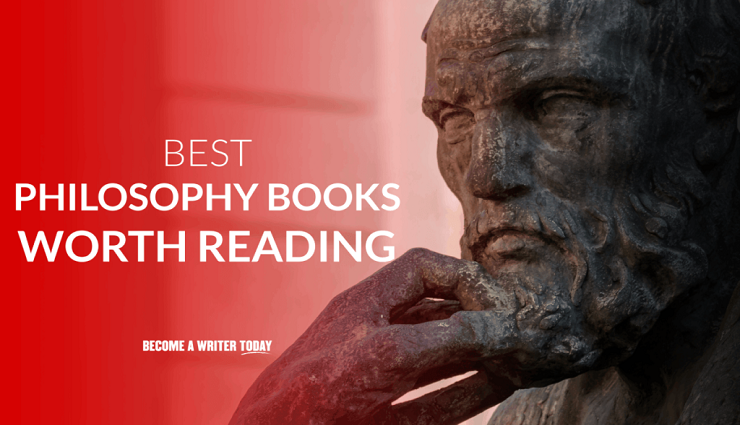Humans have always been looking for “meaning” since ancient times. Many great men and women of the world have always tried to answer questions such as “Why do we exist?”, “How should we organize our societies?” and “What is the meaning of suffering?” to answer These questions are the main topics of philosophy, and finding their answers is significant even for us, who are the heirs of those great men and women today. Philosophy teaches us how to live, how to progress, and how to be a good leader and a good person. Since philosophy is a science that is thousands of years old, it can be challenging to know where to start studying philosophy.
For this reason, we decided to introduce you to the best book to start philosophy in this article. These books are written uncomplicated and engaging to pave the way for more advanced studies in the field. Stay with us.
1. Wisdom Without Answering
Author: Daniel Klock, Raymond Martin
Number of pages: 198
The best book for starting philosophy is one that simplifies the complexities of this field for beginners. The book speaks to readers directly and personally, making them excited about philosophy and prompting them to discover how philosophy affects people. Fourteen exciting chapters take the readers deep into philosophical thinking and invite them to meditate on life’s big questions. This book poses unanswered questions and is an exercise for people’s minds to search for answers.
This book is one of the best books for starting philosophy. Its anthology, a combination of their sources, interpretations, and essays of great philosophers is dedicated to teaching their approaches.
2. Philosophy for Teens: Questioning Life’s Big Ideas
Author: Sharon M. Kay and Paul Thomson
Number of pages: 176
This book communicates with the audience in a smooth and straightforward tone without the complicated language used in most philosophical texts. Its target is primarily teenagers. If you like to read philosophy but don’t know where to start, this book is for you.
What is love? Is always lying wrong? Is beauty real or a matter of taste? What is discrimination? The answers to these and many other questions are examined in this book; An in-depth look at philosophy for beginners who want to know what lies behind everyday issues. In this book, the authors have read some of the critical issues of life, including lying, cheating, love, beauty, the role of government, hatred, and prejudice. They cover both sides of the debate on each topic and include insights from some of the world’s most famous philosophers in a conversational style. So you will be interested in it. Each thought-experiment chapter contains exercises and activities to help students make rational and informed decisions about some of life’s most significant issues.
3. The Why Café
Author: John P. Strelki
number of pages: 112
“The Why Cafe ” is one of the best-selling inspirational books by John P. Strelki. This book has been translated into 35 languages and read by more than 1 million people worldwide. John, a man in a hurry, is sitting in a cafe in a faraway place in the middle of nowhere. John plans to refuel before setting off and continuing his journey, but he meets an entirely different fate. In addition to the dish of the day, the cafe menu lists three questions everyone in the diner is encouraged to ask.
- Why are you here
- are you afraid of death
- are you satisfied?
With this food for thought and the guidance of 3 people he meets in the cafe, John begins a journey of self-discovery. Along the way, he discovers a new way of looking at life, himself, and how much can be learned from a green sea turtle.
“A person who found the reason for his life makes it no matter what.” This sentence by Nietzsche was the basis of the book “Cafe named Why.” A person who finds his purpose in life and knows that he was born to achieve that purpose realizes his uniqueness in this world, and gradually, other issues fade away for him. The importance of finding the meaning of life and trying to achieve it has been mentioned in many places in this book.
4. Breakfast with Socrates
Author: Robert Roland Smith
No. of pages: 217
Would you like to eat sweets with Hegel or have bacon and eggs with Francis? Or, for example, spend a day with Socrates, Herodotus, or Kant to know how their brains think about the most trivial issues of life? Robert Roland Smith helps you spend a typical day with philosophy in this book. Wake up with Descartes, work with Plato and Nietzsche, spend time in the gym with Kant, and have sex with Ovid or Simone de Beauvoir.
Throughout the day, Smith introduces complex, abstract ideas with concrete experience, giving you an informal introduction to applying philosophy to everyday life. In addition to covering the fundamental debates of philosophy, this book provides an irresistible appeal to the big questions it raises and gives us many ideas about how to live; After reading this book, our meals will never be the same again.
5. Driving with Plato: the meaning of life’s milestones
Author: Robert Roland Smith
Number of pages: 264
This is another book with which you can start studying philosophy. Smith teaches you how to drive with Plato and extend the day-in-the-life concept to life in this book.
You can start with birth. Some, like Sartre, consider it a lousy beginning because we did not want to come to this world, and it is useless anyway because life is meaningless. For others, like Martin Heidegger, if you were not born, you would have no sense of yourself, which is sad. What about midlife crises?
When Dante wrote the Divine Comedy, he deliberately set the story of his spiritual transformation halfway through his life. Nietzsche also talks about the change after his 45th year in his autobiography. Relying on great philosophers, literature, art, politics, and psychology, Smith creates a wide range of ideas for readers with a warm and humorous tone that makes them think and simultaneously enjoy the absurdity of life and the pure joy of discovering it. This book lets us think more deeply about critical events in our lives.
6. philosophy bites
Authors: David Edmonds and Nigel Warburton
Number of pages: 269
This two-volume course was first published as a podcast. The best 25 interviews from the website “Let Philosophy” are collected in this book. Leading philosophers, including Simon Blackburn, Alain Dubotton, Will Kymlicka, Alexander Nehamas, and more than 20 others, discuss several informal and personal philosophical issues.
For example, Peter Singer argues about vegetarianism, Anthony Appiah about cosmopolitanism, and Stephen Law about why believing in an all-powerful and good God is irrational. Some topics discussed are time, infinity, evil, friendship, animals, sports, and tragedy. These great philosophers express their thoughts simply and clearly about great philosophical ideas.
7. Philosophy: Key Themes
Author: Julian Bajini
Number of pages: 251
This book is a beginner’s guide to understanding and critiquing philosophical arguments. Each chapter covers one of the five main topics of philosophy courses: the theory of knowledge, philosophy of ethics, philosophy of religion, philosophy of mind, and political philosophy. The approach Bajini takes is to combine the description of the topic with its summary while encouraging the reader to question the arguments and positions presented.
8. philosophy: the basics
Author: Nigel Warburton
Number of pages: 248
This book is one of the best books to start philosophy. Stephen Love, author of the book “Philosophy Club” says about Nigel Warburton and his book:
He is patient, thorough and most importantly straightforward. There is no better short introduction to philosophy than this book.
This book slowly introduces the reader to the world of philosophy to make the reading process more accessible. Each chapter explains and analyzes a primary topic of philosophy with related ideas and themes:
- Can you prove the existence of God?
- How to distinguish right from wrong?
- What are the limits of freedom of speech?
- Do you know how science works?
- Is the mind different from the body?
- Can you define art?
- How should we treat non-human beings (animals)?
Nigel Warburton has added an entirely new animal chapter in the fifth edition of this book. If you want to know what philosophy is and whether the world is as you think, this book is for you.
9. Philosophy: An Introduction
Authors: John Herman Rendell and Justus Buckler
Number of pages: 296
This book provides an engaging introduction to philosophy that teaches beginners the complex and abstract concepts of this knowledge in simple language. Some topics covered are ethics, the existence of God, free will, individual identity, philosophy of mind, and epistemology.
10. Philosophy in 30 days
Author: Dominique Janico
Number of pages: 133
This book may not turn you into a great philosopher in 30 days, which is logical, but it will teach you how to think philosophically. Dominique Janico, the author of the book, shows you that philosophy doesn’t have to be scary and can even be fun. He invites the reader to think about important and complex questions and develop a critical and questioning attitude, one of the characteristics of all philosophies.
11. What Is Man
Author: Mark Twain
Number of pages: 148
Most of us probably know Mark Twain from the “Tom Sawyer” book. Meanwhile, the great author of the book “What is human?” has written with a philosophical approach and presents theories about the moral structure of humanity. This book is a conversation between a young man and an older man who are both tired of the world. The older man states that man is just a machine and nothing more. The young man disagrees and asks him to explain the details and give his reasons for thinking like that. The topics raised in this book are fate, free will, and psychological self-view.
12. The big questions
Author: Steven Landsberg
Number of pages: 292
In this book, Landsberg uses the concepts of mathematics, economics, and physics to answer the big questions in philosophy. What is real? What can we know? What is the difference between right and wrong? How should we live? I think this topic can encourage you to read this book.
Best known for his explorations of economics, Landsberg, in his fourth book, attempts an exciting and complete journey using mathematics and physics and disciplines such as economics, which he loves for their beauty, logical clarity, and profound and undeniable truth. Starts the fun in philosophy. He raises questions that have occupied philosophers for a long time. He begins with the broadest possible categories: natural and unreal, knowledge and belief, and true and false. He then focuses his investigation on a specific issue: the mathematical analysis of arguments for the existence of God.
13. Philosophy In a Week
Author: Mel Thomson
Number of pages: 168
Learn in a week and remember for a lifetime! This book will help you retain the knowledge you gain from philosophy, so it is one of the best books to start philosophy.
Like textbooks, each chapter has a summary at the end and multiple-choice questions. These will help you test yourself.
- Saturday: Explore existentialism and how the next generation of philosophers might develop existentialist ideas.
- Sunday: Think like a philosopher about knowledge.
- Monday: Learn the science and how we gain knowledge from the natural world.
- Tuesday: Explore how we speak and think and how this relates to the philosophy of mind.
- Wednesday: Learn how philosophers view and relate to religion.
- Thursday: Ethical review. How do we decide what is right?
- Friday: Discover how political philosophers have balanced the role of government with individual freedom.
14. 101 Philosophy Problems
Author: Martin Cohen
Number of pages: 256
The book “101 Philosophy Problems” is one of the best-selling books in philosophy and is suitable for people who want to start studying philosophy. The author of this book has tried to cover all classical and contemporary issues of medical ethics, modern physics, and artificial intelligence with wit and humor. This makes this book attractive for beginners.
One of the strong points of this book is that in every edition after the initial edition, correction problems and completely new topics have been added to it. For this reason, it is entirely in sync with new developments in philosophy and society. Its glossary section at the end of the book also explains the unknown and challenging terms of the book and is updated in every edition.
15. the great philosophers
author: Brian Magee
number of pages: 583
Brian Magee’s conversations with 15 contemporary writers and philosophers provide an exciting and insightful account of Western philosophy and its greatest thinkers. The discussion begins with the death of Socrates in 399 BC. It continues with a line of philosophical research through the centuries to such figures as Bertrand Russell and Wittgenstein—this book with the participation of Alfred. J. AJ Ayer, Bernard Williams, Martha Nussbaum, Peter Singer, and John Searle are not only an introduction to the philosophers of the past but also provide valuable insight into the perspectives and personalities of some of the most influential philosophers of the 20th century.
final word
In this article, we tried to introduce the best book to start philosophy to you who have just begun to get acquainted with this field. All of them have Persian translations, and since some may have several translations and are from different publications, we have only given one as an example. We do not have a specific purpose in choosing it because selecting the best Persian translation of books is beyond the scope of this article. You can select whichever translator you are most comfortable with. All the books introduced in fluent and expressive language try to make it easy for beginners to start studying philosophy, which is a hard science. We hope you enjoy it.
Let’s not forget that great philosophers in our country have written excellent philosophical books. Can you introduce one or two of Iranian authors’ best books for starting philosophy in the comments section to us and the dear readers of “How”?



